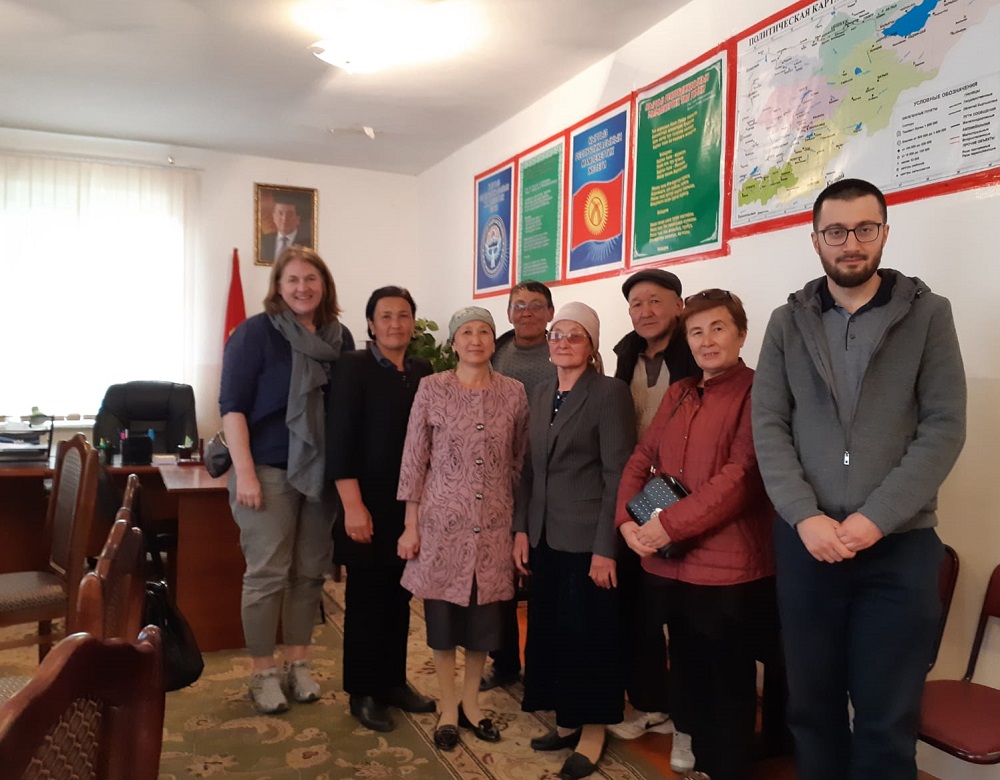
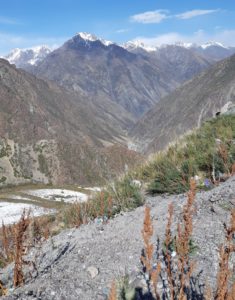 Cathy Turner, PWYP’s new Director of Advocacy and Learning, met PWYP campaigner Gulnara Isbasarova in Kyrgyzstan, and was inspired by her achievements, what drives her and her ideas for bolstering women’s roles in our movement.
Cathy Turner, PWYP’s new Director of Advocacy and Learning, met PWYP campaigner Gulnara Isbasarova in Kyrgyzstan, and was inspired by her achievements, what drives her and her ideas for bolstering women’s roles in our movement.
A proud pastoral tradition still prevails in the bold, mountainous landscape of Kyrgyzstan’s Talas region. Half a day’s drive from the capital, Bishkek, over a mountain range and close to the border with Kazakhstan, the region can seem timeless. But the area is also home to pockets of gold and copper mining, and accompanying environmental concerns.
 These are concerns to which PWYP activist Gulnara Isbasarova is dedicated to fighting. I was lucky enough to meet her and hear her remarkable story after having joined PWYP’s Secretariat just a few months ago, as Director of Advocacy and Learning. And what a few months it’s been! It’s such an exciting time to become part of the movement, when we’re discussing how to implement PWYP’s new strategy, Vision 2025. And from the outset, I’ve had the opportunity to meet PWYP members at regional consultations in Côte d’Ivoire, Uganda and Kyrgyzstan.
These are concerns to which PWYP activist Gulnara Isbasarova is dedicated to fighting. I was lucky enough to meet her and hear her remarkable story after having joined PWYP’s Secretariat just a few months ago, as Director of Advocacy and Learning. And what a few months it’s been! It’s such an exciting time to become part of the movement, when we’re discussing how to implement PWYP’s new strategy, Vision 2025. And from the outset, I’ve had the opportunity to meet PWYP members at regional consultations in Côte d’Ivoire, Uganda and Kyrgyzstan.
Many things have struck me during this short time. One is the sheer breadth and depth of the movement. I can’t bring to mind any parallel groups, uniting so many committed activists, in so many places, behind one cause: that all citizens benefit from their natural resources, now and in the future.
Another has been the large number of impressive women that I have encountered already, who play a central role in the PWYP movement, fighting for greater transparency and accountability in the extractives sector in their countries and communities. This shouldn’t be striking – women should be at the forefront of such movements. But all too often, this is not the case.
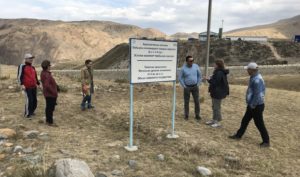 So I was particularly pleased to be able to spend time with Gulnara Isbasarova, following the third regional consultation I attended, by the lakeside in Issyk-Kul in the Kyrgyz mountains to learn more about her activism. I travelled to her home in Talas with PWYP’s Eurasia regional coordinator, Emil Omarov and Gulnara’s daughter, Nazik Imanbekova, herself a budding activist in Kyrgyzstan. There, we met leaders and villagers from one municipality, which covered four “villages” with a combined population of about 66,000 people.
So I was particularly pleased to be able to spend time with Gulnara Isbasarova, following the third regional consultation I attended, by the lakeside in Issyk-Kul in the Kyrgyz mountains to learn more about her activism. I travelled to her home in Talas with PWYP’s Eurasia regional coordinator, Emil Omarov and Gulnara’s daughter, Nazik Imanbekova, herself a budding activist in Kyrgyzstan. There, we met leaders and villagers from one municipality, which covered four “villages” with a combined population of about 66,000 people.
Gulnara fights for communities to have informed choices.
The striking mountainous landscape underpins their proudly maintained pastoral lifestyle – one that sometimes sits uncomfortably alongside the area’s expanding gold and copper mining activities and the environmental concerns that accompany this. The local representatives we met were particularly worried about the likely environmental and health impacts of plans by one Russian mining company, Geolodobicha, to locate their waste-management (or “tailing”) activities just 1.5 km from the nearest village. Indeed, the road leading to the waste water site was so close that it was even visible from the village.
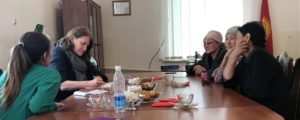 Gulnara has been part of the PWYP movement for 15 years now. An educationalist and economist by training, with no background in mining, she initially got involved because the introduction of mining in her community was so controversial that it risked violent conflict. These were volatile times in that part of the country. But the mining question too was tearing local villages, and even families, apart. Some villagers supported the mining companies and the promise of much needed jobs for the area, but many others were openly hostile, fearing the damage mining could cause to the land and local water supplies direct from mountain springs – and ultimately their way of life.
Gulnara has been part of the PWYP movement for 15 years now. An educationalist and economist by training, with no background in mining, she initially got involved because the introduction of mining in her community was so controversial that it risked violent conflict. These were volatile times in that part of the country. But the mining question too was tearing local villages, and even families, apart. Some villagers supported the mining companies and the promise of much needed jobs for the area, but many others were openly hostile, fearing the damage mining could cause to the land and local water supplies direct from mountain springs – and ultimately their way of life.
Gulnara wanted to do something constructive to help.
By then, she knew Kalia Moldogazieva, another formidable activist and founding member of PWYP in Kyrgyzstan. Over time, they managed to organise – as provided for by law – an independent evaluation of the mine’s environmental impacts on the surrounding area. They also gathered local people together for public hearings with Andash, the mining company, and parliamentary deputies. Eventually, as a result of the environmental study and continued advocacy at local and national levels by Gulnara and her fellow activists, the State Committee for Industry, Energy and Subsoil suspended the company’s licence to conduct its gold ore mining activities, which was then finally annulled in 2017.
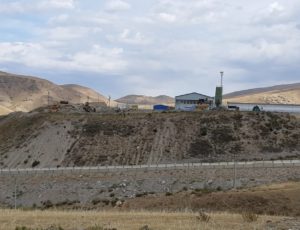 This was a resounding success for Gulnara and the community. But of course, different communities seek different outcomes. Some – like the villagers we met – are more tentative and do not want to risk companies leaving altogether and losing valued jobs and social funding. Instead, they just want to be better informed and consulted by the mining companies and to have some form of oversight. Others simply oppose anything they fear might scare off mining companies altogether.
This was a resounding success for Gulnara and the community. But of course, different communities seek different outcomes. Some – like the villagers we met – are more tentative and do not want to risk companies leaving altogether and losing valued jobs and social funding. Instead, they just want to be better informed and consulted by the mining companies and to have some form of oversight. Others simply oppose anything they fear might scare off mining companies altogether.
The point is, Gulnara fights for communities to have informed choices.
But her success comes at a cost. Like so many in the movement, her campaigning has meant personal sacrifices, not only financially, but above all, the time she has been able to spend with her family. And not everyone is happy about her achievements. She has been threatened as a result.
But, undeterred, she is full of ideas and recommendations for what’s needed to make even more effective progress. She wants to see advocacy training modules and toolkits, as well as capacity-building to develop the technical expertise of local people. She’s also keen for women to be more involved, not least – as she herself has shown – because women can play such a decisive role in influencing their families and communities. And she wants to encourage young women and girls to learn about women more established in the movement, and their success stories, so they can be inspired in their turn to make change happen too.
So I hope, Gulnara, that your story – and so many like it – will encourage not just young women, but many other people, to get involved in making Vision 2025 a reality, so citizens worldwide can benefit fairly from their resources.